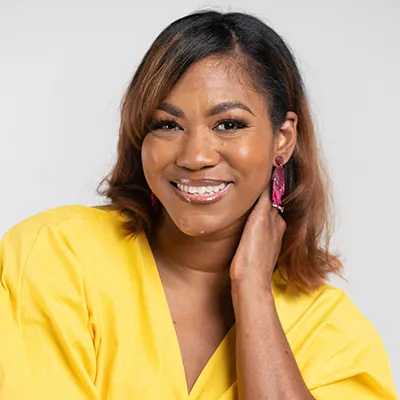This groundbreaking collection, which also goes by the name Louisiana, U.S., Records of Enslaved People, 1719-1820, was the brainchild of Dr. Gwendolyn Midlo-Hall and features the names, genders, ages, occupations, illnesses, family relationships, places of origin and more for upwards of 100,000 formerly enslaved in Louisiana. In this session, learn the history of the collection, where records were obtained, how to search and find original documents, and more.

Already a member? Log in









You should receive a confirmation email with a link to the webinar soon.
You’ll also receive a reminder both the day before and one hour before the webinar begins.
Didn’t receive a confirmation email?
You successfully registered for %s.
You should receive a confirmation email with a link to the webinar soon.
You’ll also receive a reminder both the day before and one hour before the webinar begins.
Didn’t receive a confirmation email?
To ensure a smooth, high-quality webinar experience, check the quality of your internet connection.
On the day of the webinar, connect 30–40 minutes before and turn off any background software. If you can’t tune in live, you can view the recording later in the Webinar Library. If joining via a mobile device, be sure to first install the free GoTo app.
Questions? Contact us or read our FAQ.
It looks like you’re already registered for this webinar
You can register for another webinar.
Didn’t receive a confirmation email?
It looks like you’re already registered for these webinars
You can register for another webinar.
Didn’t receive a confirmation email?
Something happened on our end, sorry about that
We were unable to complete your registration.
Please try again later.



 Syllabus
Syllabus
 Chat Log
Chat Log
This was an excellent webinar! I always learn so much from Nicka Smith. She always teaches us the what, where and how to use record sets that are so vitally important for African American genealogy.
Nicka has always been a remarkable presenter of her research. I feel honored to know her.
Nicka’s presentation was incredibly informative and easy to understand. I now know that doing research on enslaved people in Louisiana is very unique. And now knowing about Dr. Midlo-Hall’s work and getting direction about my specific research will make all the difference. I am so glad Nicka took my question because I would’ve never known about looking outside of the Louisiana to find my ancestors.
Awesome webinar. So much great news. I can’t wait to watch the replay.
No words for the amount of information imparted by Nicka in such an easy to understand fashion. Thank you Nicka
Great detail and resource information given!
Excellent. Exceptional.
Excellent webinar with Nicka Smith. My first time joining one of her talks and it was very informative. Thank you!